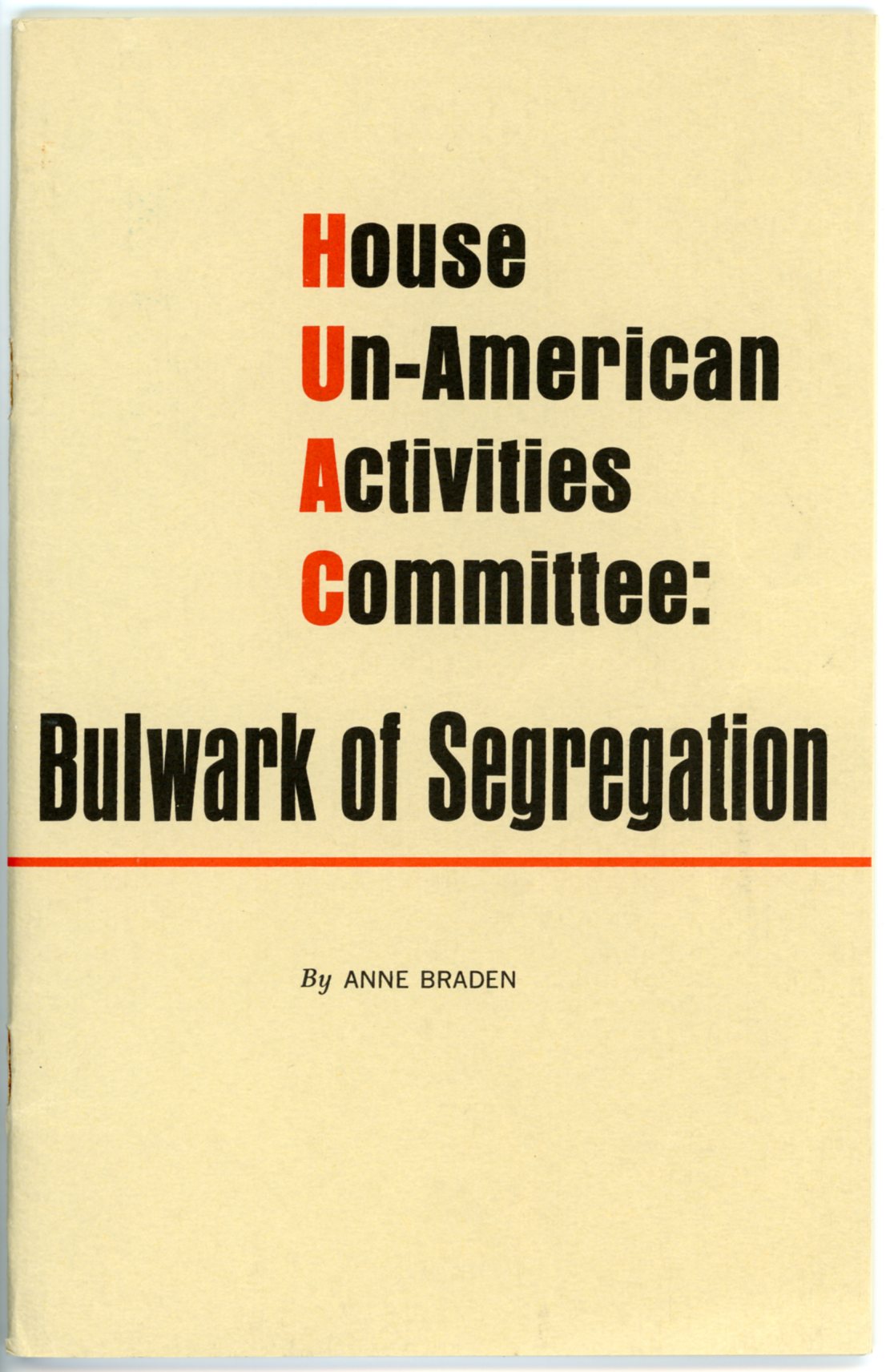This blog post is most of the exhibit case text from “The Cold War and Civil Rights in the United States,” part of the Special Collections Research Center’s “Looking Over our Shoulder: the Cold War in American Culture” exhibit, on display through January 2022.
In the aftermath of World War II in the United States, Cold War tensions with the Soviet Union arose at the same time that Black Americans increasingly demanded the civil rights denied to them by legal and structural racism, particularly (but not exclusively) in the Jim Crow South. Opponents of the Civil Rights Movement weaponized Cold War fears of communism and communist infiltration against Civil Rights leaders and activists. They regularly accused those who fought against segregation, the disenfranchisement of Black people, and other forms of discrimination of being un-American communists or communist sympathizers – as activist Anne Braden noted in her pamphlet House Un-American Activities Committee: Bulwark of Segregation, “the advocates of civil rights are persistently called communists. This has always been true, but it intensified during the 1950’s when Communist-labeling became a national pastime, and it has continued to increase in the 1960’s.”[1]

The cover of Anne Braden’s pamphlet connecting HUAC with segregation and opposition to the Civil Rights Movement. James H. Laue papers, Box 55, Folder 10, Special Collections Research Center, George Mason University Libraries.
As civil rights, the anti-Vietnam war movement, and other social movements gained ground in the United States in the 1960s, conservative critics continued to connect progressive politics to communist, pro-Soviet danger. Government organizations, particularly the FBI, targeted groups such as the Black Panther party on the grounds that they threatened national security. As noted in a recent Chicago Sun-Times editorial, “[FBI Director J. Edgar] Hoover wanted to ‘disrupt, misdirect and otherwise neutralize’ African American organizations and prevent the rise of charismatic and powerful Black leaders. In 1976, a Senate select committee concluded that the FBI had set out to destroy the Black Panther Party.”[2]
[1] Anne Braden, “House Un-American Activities Committee: Bulwark of Segregation,” 1963, 4-5. James H. Laue papers, C0055, Box 55, Folder 10, Special Collections Research Center.
[2] CST Editorial Board, “The killing of two Black Panthers, the secrets of the FBI — and our nation’s long fight for police reform,” Chicago Sun-Times, January 24, 2021, https://chicago.suntimes.com/2021/1/24/22244731/new-fbi-records-black-panthers-police-reform-fred-hampton-mark-clark-editorial
Follow SCRC on Social Media and look out for future posts on our Facebook, Instagram, and Twitter accounts. To search the collections held at Special Collections Research Center, go to our website and browse the finding aids by subject or title. You may also e-mail us at speccoll@gmu.edu or call 703-993-2220 if you would like to schedule an appointment, request materials, or if you have questions.

